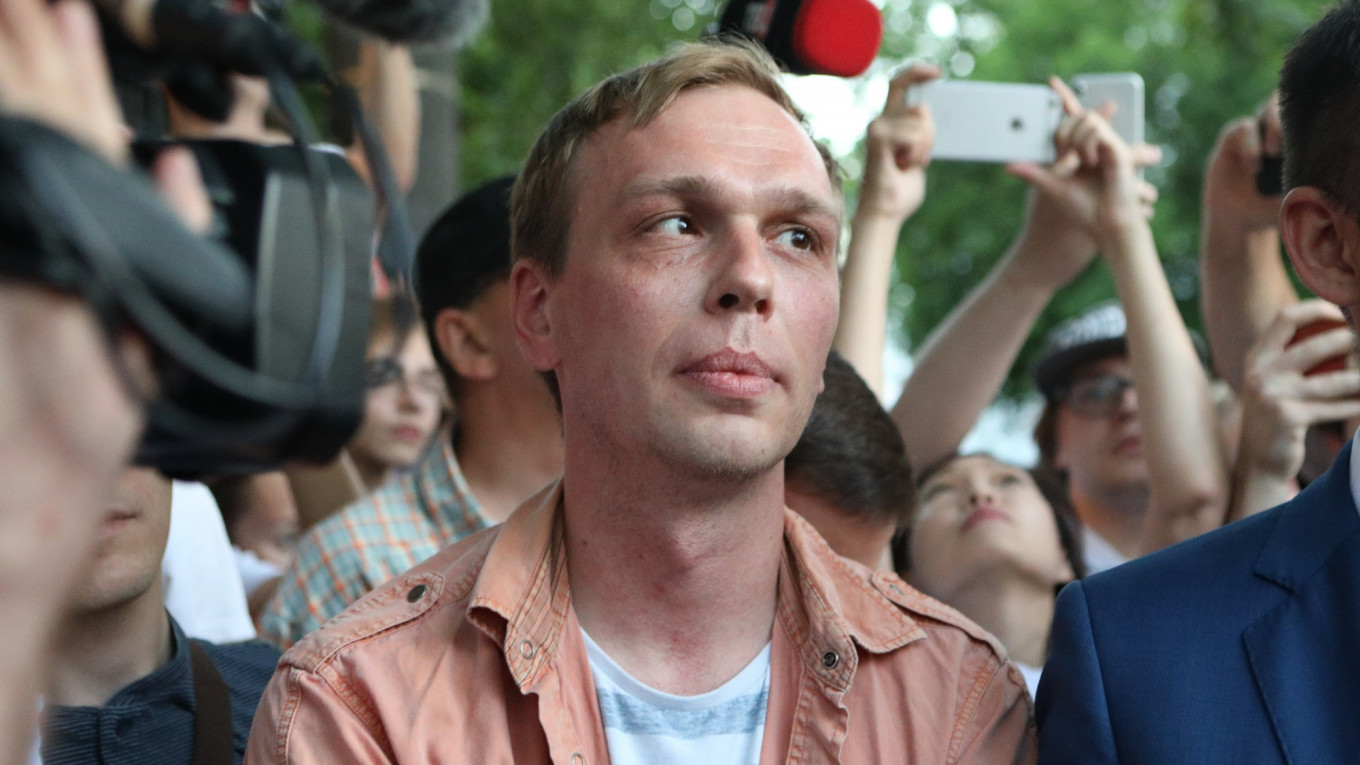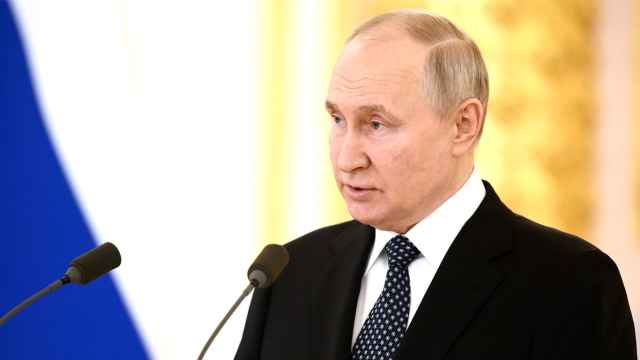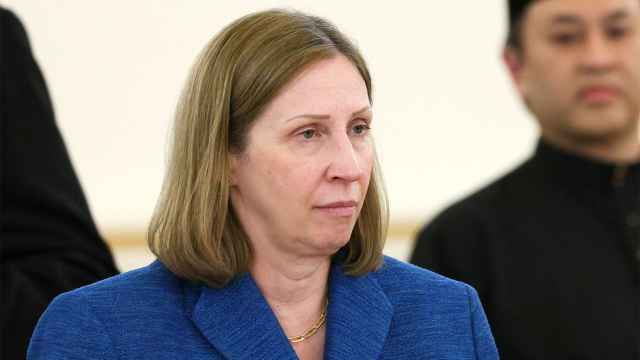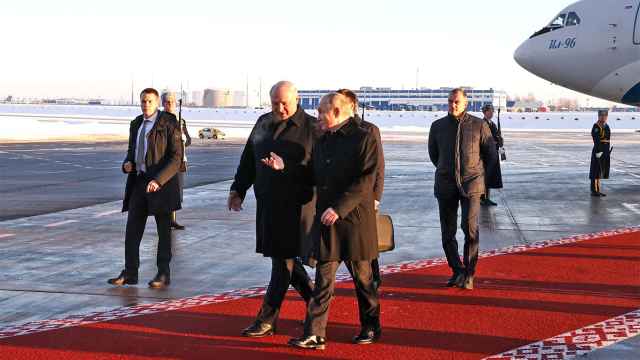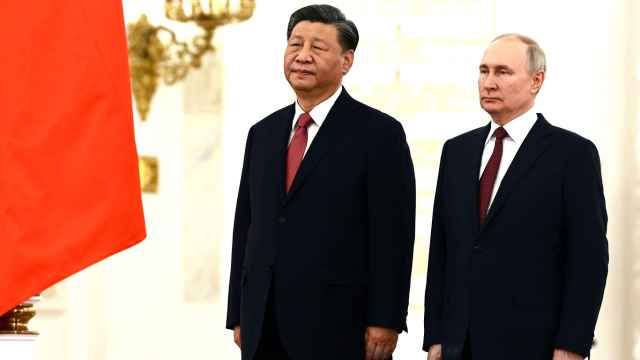Ivan Golunov is free. His case dropped, his file closed, his persecutors under investigation. But spare a thought for another victim of the venal and voracious law-enforcement agencies, the overbearing and omnivorous elites, one who cannot wriggle from their grip, and whose fate is in their hands. I refer, of course, to poor, benighted Vladimir Putin.
His cage is, of course, as gilded as can be, and it is entirely of his own making. We need to shed no tears for his fate. However, the perverse lesson of the Golunov affair is that while he is still the unquestioned decider, he cannot prevent such counter-productive catastrophes in the first place — and usually cannot or will not even try to clear them up afterwards.
Golunov’s case was, after all, depressingly familiar. Investigative journalists in Russia face intimidation or worse all the time. His good fortunes were three-fold. First of all, he is liked and respected by a broad cross-section of the Moscow media and cultural sets, the people working in national and not local press, the people who also hobnob with the rest of the metropolitan elites.
Secondly, Golunov did not fall foul of the apex predators of this system. Unlike former minister Alexei Ulyukaev, it was not Rosneft boss and Putin confidant Igor Sechin who was after his scalp. Unlike investor Michael Calvey, he did not find himself in dispute with a friend of the son of Security Council secretary and former FSB chief Nikolai Patrushev.
Thirdly, and most broadly, it came at a time when Russians appear increasingly to be losing their patience with the status quo, and also optimistic that something about it can change. Revolutions are built on hope, not desperation, and the greatest asset for an authoritarian regime is apathy. As evident most recently in Yekaterinburg, civil society has been on the march, and this must have emboldened many of those who decided to protest Golunov’s fate.
For most Russians, life is getting harder, or at least not improving: real incomes have fallen every year since 2014. Putin’s promise in February that “this year, people should feel changes for the better,” sounds hollow. The legitimating narrative of his first two presidential terms — that he would bring stability and prosperity, in return for a free hand — now has little traction.
His new narrative, that Russia is under global threat and must stand tall again, is not wholly without appeal. But the desperate attempts to hide the human and economic costs of adventures in Donbas, Syria and beyond, as well as the lack of public enthusiasm for them, all show how little.
No wonder, then, that the Kremlin, or rather the Presidential Administration, was eager to make this story go away, especially before Putin’s “Direct Line” phone-in on 20 June. As with the Yekaterinburg church crisis, a resolution needed to be forced.
What is striking, though, is that the days when the government spin doctors could try and push the old line that “good tsar” Putin is defending his people from the “evil boyars" are over.
On one level it is because it is hard to sustain, two decades into his reign. But on the other, it is that Putin still needs those boyars. If anything controlling them is getting harder and harder.
The tempo of embezzlements, feuds, scandals, persecutions and peculations seems to be increasing. This is again a symptom of economic stagnation: lean times make for sharper disputes. Yet it also seems to reflect a growing sense across the country that the Putin order is in its twilight. No one expects it imminently to end, but that end is coming.
As a result, there is less reason to be good, less reason to hoard political capital. It is a time to make some fast money, to bury your enemies, and not to worry too much quite how obvious it may be, and what the broader costs may be.
Putin is at once invulnerable and impotent. He can intervene in any specific case when he chooses, but usually he chooses not to. He needs the boyars and is by temperament prone to let his cronies have their way, even when it undercuts his own position. Ramzan Kadyrov got away with murdering Boris Nemtsov under the Kremlin walls. Sechin nailed Ulyukaev’s scalp to his wall. Calvey was the spectre at every St. Petersburg International Economic Forum banquet.
More to the point, for every Golunov, there are myriad cases that never catch the public eye. Putin can tell officials to stop stealing, the police to stop planting evidence, oligarchs to play by the rules. But no one believes he means it – or that he can do anything about it.
So here is Putin’s prison. He cannot curb the excesses and lawlessness of the elite, and as a result looks weak. Politics is about perception, and to look weak is to become weak. Sensing uncertain times ahead, the elite actually begins to steal and feud more enthusiastically. Both angered by this repudiation of the minimalist Putinist social contract and also encouraged by the same sense that change may be coming, the Russian people also increasingly push back.
Sometimes, the system will have to allow them to do so, emboldening them. And most of the time, it won’t, angering them further. So long as he cannot seek truly to limit the excesses of the elite, there is little Putin can do. So the final years of his reign are becoming defined by the short-sightedness, greed and often downright stupidity of the people on whom he relies.
A Message from The Moscow Times:
Dear readers,
We are facing unprecedented challenges. Russia's Prosecutor General's Office has designated The Moscow Times as an "undesirable" organization, criminalizing our work and putting our staff at risk of prosecution. This follows our earlier unjust labeling as a "foreign agent."
These actions are direct attempts to silence independent journalism in Russia. The authorities claim our work "discredits the decisions of the Russian leadership." We see things differently: we strive to provide accurate, unbiased reporting on Russia.
We, the journalists of The Moscow Times, refuse to be silenced. But to continue our work, we need your help.
Your support, no matter how small, makes a world of difference. If you can, please support us monthly starting from just $2. It's quick to set up, and every contribution makes a significant impact.
By supporting The Moscow Times, you're defending open, independent journalism in the face of repression. Thank you for standing with us.
Remind me later.



